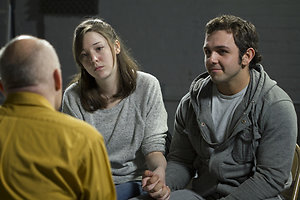The Therapy Process
I follow this process for both short and long term therapy
The assessment phase
I usually conduct an assessment in the first session for individuals and couples who want short-term therapy, which is between 12 to 20 weeks. For individuals and couples who wish to engage in long-term therapy (mostly open ended), I use the first 6 session to carry out a more in-depth assessment. I use my own assessment forms to take down all the information I need to know about you. I acknowledge that it might be difficult for you to give me all the information in the first session and I leave it up to you to tell me more about yourself when you are ready for it. Everything you are telling me about yourself is of course completely confidential and helps me to form a clearer picture about who you are as a whole person and enables me to help you in more specific ways.
The second and third session
Here we will discuss and agree a business contract, which means to agree clear boundaries in the beginning of treatment about time, fees, cancellation and confidentiality. We will also discuss the main problems you would like to work on and form a treatment plan, which means to agree the way of working together, for example what sort of model would be suitable for your problems (Person Centred Counselling, Transactional Analysis, Rational Emotive and Cognitive Behaviour Therapy, Traumatic Incident Reduction or maybe a more integrative approach) ?
The middle phase:
My main approach is to encourage you to explore your feelings and take responsibility for your thoughts and actions. As I work in a way that empowers the client, I always work with what you present. I do not suggest an agenda, especially in the first few sessions. I usually start the session by asking you what you want to explore today or what you want to get out of therapy today. When working within the model of Rational Emotive and Cognitive Behaviour Therapy or Traumatic Incident Reduction, we will agree an agenda in the beginning of the session.
By listening attentively, I begin to perceive your difficulties from your point of view and can help you to see things more clearly, maybe from a different angle. I encourage you to explore various aspects of your life and feelings concerning those aspects, talking about them freely and openly in a way that is rarely possible with family and friends. Bottled up feelings such as anger, anxiety, grief, jealousy, sadness and pain can become very intense and the opportunity to express them can make it much easier to understand. As I acknowledge your feelings and respect you as a person in your own right, you gain self-respect and a sense of being valued, which leads to building trust. The building of a trustful relationship between counsellor and client is an essential part of the process.
Whatever approach we agree upon, the ultimate aim for you is to achieve autonomy, to make your own choices and decisions and put them into action.
The ending
I usually negotiate the ending with you so that the ending is planned and organised. The process of ending can take between 3 to 4 sessions, were we will discuss and review in which way you have benefited from therapy and how you can put these benefits into action in your day-to-day life without the help of therapy.


